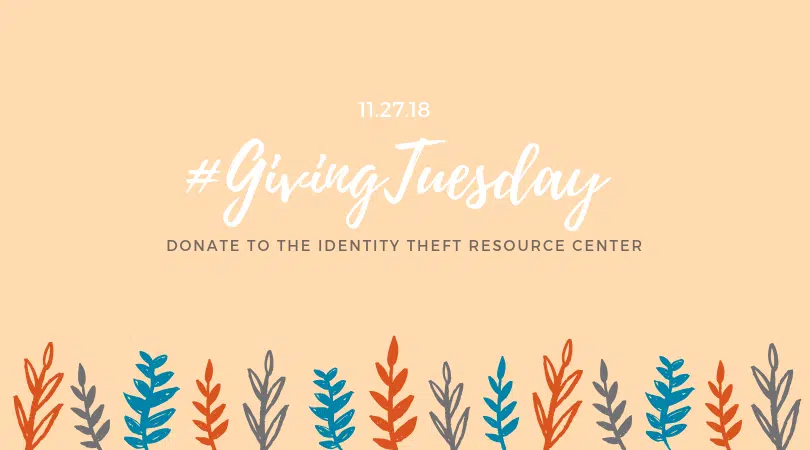Give Back this Giving Tuesday and Be Aware of Scams
Home Help Center Give Back this Giving Tuesday and Be Aware of Scams

If you’re like many US consumers, you may already be thinking ahead to your Black Friday or Cyber Monday shopping. After all, it’s a good idea to be prepared: know what your budget is, scope out what gifts you may be looking for, have your retail shopping accounts already created and secured with a strong, unique password, even have your credit or debit cards ready so that you don’t expose your data or spend unwisely.
Now in its seventh year, there’s another holiday that follows right on the heels of the shopping extravaganza, one that is truly a remarkable kickoff to the holiday season: Giving Tuesday. When the dust settles from the flurry of early shopping, it’s a good time to spread some goodwill by contributing to a worthy cause.
Of course, your favorite charity could use your support at any time of year, so what makes #GivingTuesday so special? For starters, the social media buzz surrounding the event can help encourage donors who may not have known about the annual holiday. Also, a number of companies offer to match funds that day, helping to spread your generous donation even further.
Unfortunately, any time a newsworthy event takes place, scammers are ready to strike. That’s why it’s important to be ready for Giving Tuesday and avoid impulse donations unless you can trust the source:
1. Plan now for how your donation will be made – Will you use a crowdfunding site? A payment app? A credit card or debit card? By knowing how you’re going to give, you can avoid some of the scams that may pop up.
2. Know where your money is going – Some generous consumers like to split their donations among different causes, such as an animal advocacy group, a veterans’ organization, and a charity that provides meals for the homeless. Others might choose to rotate their donations year to year in order to give the maximum support they can afford to a much-needed organization. In any case, if you make your plans now—even if you wait to make the donation until the actual holiday—you’ll be less likely to be taken in by a phony charity request. Verify your favorite charities through Guidestar or BBB Wise Giving.
3. Be careful about oversharing – One sure sign that a donation request is a scam is if they ask for a ridiculous amount of personal data. Yes, charities do like to get contact information so they can follow up with you later, and some charities need to collect small amounts of demographic info. But anyone who wants your birth date, Social Security number, any kind of account numbers or login credentials or other sensitive info should be avoided.
It’s important that we all do what we can to help agencies and organizations who do important work, but at the same time, it’s okay to be hesitant when it comes to your security. Be on the lookout for scams and fraud, and avoid any scenario that makes you uncomfortable. Giving Tuesday is a great opportunity to offer your support but do your homework to ensure that your donation is going to the right people while protecting your privacy.
For more information on Giving Tuesday—both as an individual donor or for information on helping worthy causes get involved—visit GivingTuesday.org.
Read next: “Secret Sisterhood” Online Gift Exchange Scam Alert
How much information are you putting out there? It’s probably too much. To help you stop sharing Too Much Information, sign up for the In the Loop.
Get ID Theft News
Stay informed with alerts, newsletters, and notifications from the Identity Theft Resource Center

